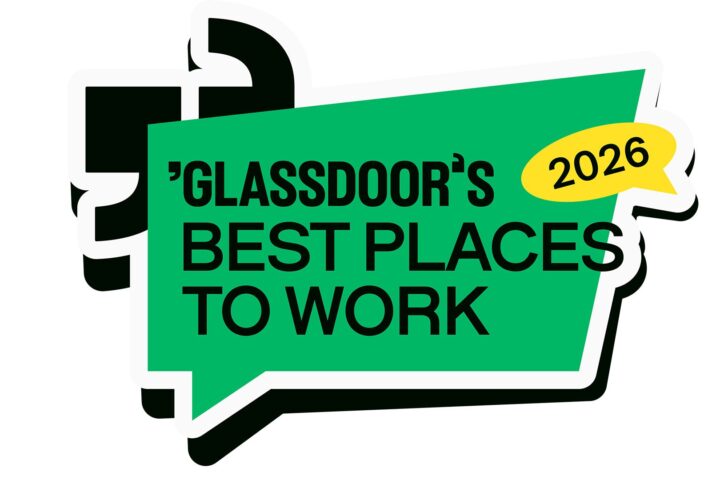A survey of over 2,600 workers, conducted by HR software provider Ciphr, found that one in seven (14%) female managers felt their gender had made it harder for them to succeed at work.
In stark contrast, only one in 14 (7%) male managers shared the same experience.
Female employees, particularly those in management positions, are twice as likely as their male counterparts to perceive their gender as a barrier to career success, according to the research.
This research, released ahead of International Women’s Day, underscored the ongoing presence of gender bias and barriers—both real and perceived—across various industries in the UK.
Female leaders and senior managers appeared to be the most affected, with nearly a third (32%) of women in these positions reporting experiences of discrimination or unfavourable treatment during recruitment due to their gender.
Additionally, one in six (16%) believed that their gender has made career success more difficult to achieve.
Gender discrimination was not limited to senior positions; it was also prevalent in middle and junior management roles.
Nearly one in four (23%) female managers surveyed reported experiencing gender discrimination in their careers, compared to just one in seven (14%) of male managers.
Furthermore, gender bias affected non-management roles as well.
Among female employees in non-management positions, one in nine (11%) reported experiencing gender discrimination at work or during the hiring process, whereas only 6.2% of men in similar roles faced such challenges.
Women, regardless of their seniority, are more likely than men to encounter gender-based workplace discrimination, hiring bias, and lower pay.
The UK’s gender pay gap currently stands at 13.1% in favour of men.
Data from Ciphr’s study showed that just 3.2% of male employees in non-management roles and 7% of male managers believed that their gender has hindered their career progression.
However, these figures double for women in similar positions, rising to 7.7% for non-management roles and 14% for management roles.
Self-employment does not necessarily shield women from gender-based challenges.
On the contrary, it may exacerbate them.
Nearly one in five (18%) self-employed women felt that their gender had made it harder to achieve success, whereas only 0.9% of self-employed men reported the same.
The likelihood of facing gender-related barriers appears to be higher in industries that are male-dominated, especially at senior levels.
Women working in these fields reported some of the highest levels of gender inequality and discrimination.
For example, female managers in the legal sector are four times more likely than their male counterparts to report experiencing gender-related obstacles in their careers, with 42% of female managers in law facing such barriers compared to just 10% of male managers.
A similar trend is observed in energy and utilities, where 33% of female managers, compared to 11% of male managers, believed their gender has hindered their career progression.
This pattern persisted across multiple industries, including property and construction (20% versus 5%), business, consulting and management (20% versus 10%), and engineering and manufacturing (16% versus 1.4%).
Other industries where gender bias appeared to be a notable barrier for female managers include retail (17% versus 2.4%), accountancy, banking, and finance (14% versus 4.9%), public services and administration (12% versus 4.3%), hospitality and events management (19% versus 11%), and information technology (16% versus 11%).
Even in sectors traditionally associated with a higher representation of women, such as healthcare, education, and charity work, gender disparities persist.
In healthcare, 9.2% of female managers felt their gender has hindered their success, compared to 5.4% of male managers.
In teaching and education, the figures stood at 6.2% for women and 5.6% for men.
Interestingly, in creative arts and design, the gap is much smaller, with 30% of female managers and 27% of male managers experiencing gender-related obstacles.
However, in the charity and voluntary sector, the trend is reversed, with more male managers (11%) than female managers (5.3%) feeling that their gender has made career progression harder.
Claire Williams, chief people and operations officer at Ciphr, said: “While our survey didn’t directly capture the reasons why many female managers might feel their gender has made it harder for them to succeed, there’s a lot of existing research and experience that can shed light on these results.
“Stereotypes and gender bias, both unconscious and overt, are still a reality that many women must contend with.
“This can have a direct impact on women’s ability to succeed and progress.”
She added; “Also, often, it can have a secondary impact on their confidence in the workplace, where fear of having their behaviours viewed negatively (the ‘likeability penalty’) can affect how their competence and authority are perceived.
“In male-dominated fields in particular, female managers may have fewer role models and senior leaders to mentor and sponsor them.
“So it’s critical that organisations that do have long-standing hierarchical structures, and historically male-dominated client bases, such as the law or property, for example, take positive action to improve cultural diversity.
“Research consistently shows that women tend to be judged more harshly for mistakes and are often held to higher standards to ‘prove’ their competence, especially in technical fields.
“This can also lead to a ‘performance tax’, where female managers feel the need to over-prepare, over-perform, and self-censor to avoid reinforcing negative stereotypes.
“All these factors contribute to the perception that female managers in many of these industries have to work harder, or overcome additional hurdles, compared to their male counterparts.”
Ann Allcock, head of diversity at Ciphr, added: “In workplace cultures where gender-based harassment or discrimination persists, it’s not surprising that women find it hard to be at work, let alone to succeed.
“Traits and behaviours typically associated with men continue to be recognised and more highly rewarded than ‘female traits’, and women are typically held to higher performance standards than men, particularly as they progress.
“There’s also the often-reported difference in confidence between men and women – where men may typically overestimate their abilities and performance while women may underestimate both.
“When referred to as the ‘confidence gap’, this can appear to imply a deficit on the part of women.
“Whereas the fault is with processes tinged with bias, that fail to both objectively identify and reward performance and ability, and to recognise the value of different skills and approaches.”
Allcock concluded: “While both men and women may increasingly request and benefit from flexible working policies and options, because of society’s stereotypes around caring responsibilities, it is still predominantly women who take up or return to part-time roles to combine work and family – often at a high professional cost.
“The general issue of long-hours culture and over-work can bake in these challenges for women.”

















